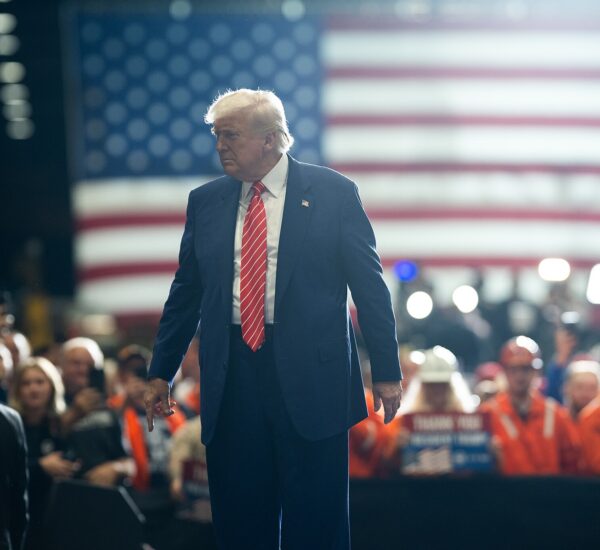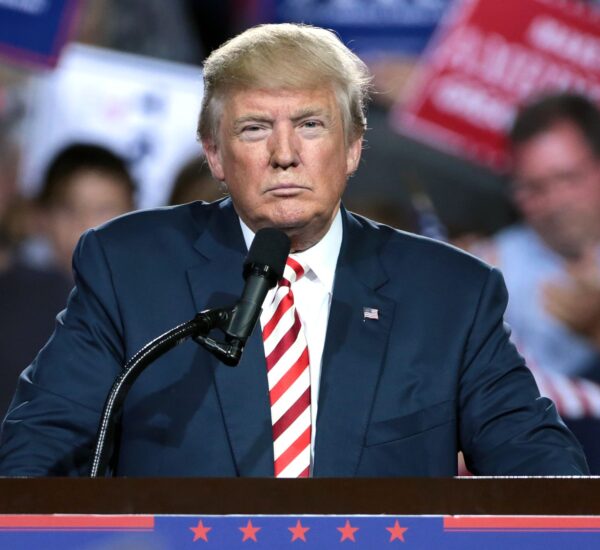Trump Ordered To Leave McConnell Alone
Senate Republican Whip John Thune (R-S.D.) has recently urged President-elect Donald Trump to refrain from intervening in the race to succeed Senate Republican Leader Mitch McConnell (R-Ky.), making waves within the GOP as the high-stakes battle for leadership intensifies.
Thune’s position is clear: he believes it would be in Trump’s best interests to stay neutral and allow Senate Republicans to decide their next leader without outside interference. His message, aimed at preserving the independence of Senate Republicans, has been echoed by several of his allies, including Senator Markwayne Mullin (R-Okla.), who recently told CNN that Trump should “stay out of the race.”
Thune’s call for neutrality has stirred up tension within the Senate GOP, especially after Trump’s decisive victory over Vice President Kamala Harris, which helped the Republicans reclaim the Senate majority. While Thune’s supporters see his stance as a defense of the Senate’s right to choose its own leader, his rivals in the leadership race—Senators John Cornyn (R-Texas) and Rick Scott (R-Fla.)—believe the calls for Trump to stay out are a sign that Thune is worried Trump may not back him. Some even suggest that Thune fears Trump’s endorsement of either Cornyn or Scott could derail his leadership ambitions.
Rick Scott, in particular, has a strong relationship with Trump, having traveled to Mar-a-Lago in 2021 to present Trump with a “Champion of Freedom” award. He is also the first senator to attend Trump’s criminal trial, and many expect him to court Trump’s endorsement for Senate Majority Leader. As Senate Republican sources note, Scott’s chances of succeeding McConnell largely hinge on winning Trump’s full support.
On the other hand, Cornyn, who has a longer history of working with Trump, is hoping his efforts to secure funding and champion the Trump agenda will help him gain Trump’s backing. The Texas senator has made clear his interest in rebuilding the relationship he had with Trump during his presidency, citing their joint efforts on key legislative victories, such as tax reform and judicial appointments.
Thune, however, has had a more complicated relationship with Trump. After opposing efforts to object to the certification of the 2020 election results, Thune found himself publicly rebuked by the president. Trump even threatened to support a primary challenger against Thune in 2022, but the South Dakota senator ultimately secured a comfortable re-election victory. Since then, Thune has worked to mend fences with Trump, visiting him at Mar-a-Lago and pledging to collaborate closely with the Trump administration if he is elected as the next Senate Majority Leader.
Despite these past tensions, Thune remains firm in his belief that leadership elections should be determined by Senate Republicans themselves, without external pressure. “These Senate secret-ballot elections are probably best left to the senators,” Thune explained during a recent interview with CNBC. He added that Trump’s influence could be a double-edged sword, noting that while the president has significant sway, it’s ultimately up to Senate Republicans to choose their leader based on their unique needs and priorities.
Historically, the last time a president played a major role in selecting a Senate Majority Leader was in 2002, when George W. Bush helped secure the election of Bill Frist (R-Tenn.) to lead the GOP in the Senate. Frist’s close relationship with Bush played a key role, even though his leadership style later caused friction with some GOP colleagues.
For Thune, allowing the leadership election to proceed without presidential interference is a matter of principle—one that he argues will allow Senate Republicans to unite behind the right leader for the next Congress. With a critical presidential election ahead, the choice of Senate Majority Leader will set the tone for the GOP’s legislative agenda and its ability to work with the White House in the years to come.





